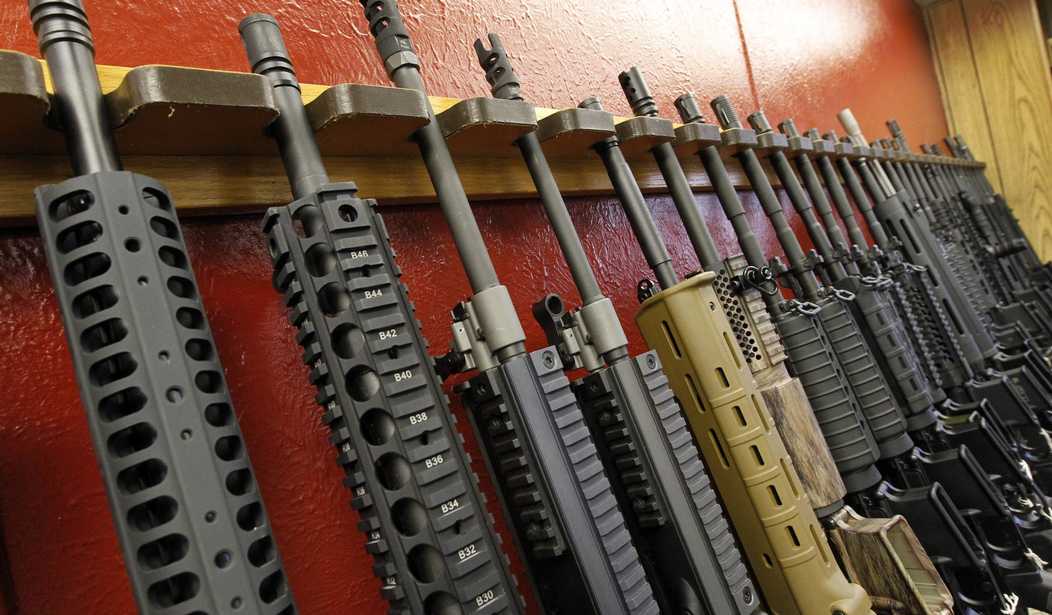The race to undo state-level infringements on our right to bear arms is in full swing, with new lawsuits filed on what seems like a daily basis. One of the latest pieces of litigation involves the state of Connecticut’s ban on so-called assault weapons, with the Connecticut Citizens Defense League and the Second Amendment Foundation partnering with several individual plaintiffs to overturn the prohibition on modern sporting rifles that has been in place since 1993.
While the gun ban has been previously challenged and was upheld by the Second Circuit Court of Appeals, Second Amendment Foundation founder and executive vice president Alan Gottlieb says that previous decision relied on the two-step, interest balancing test that was rejected by the Supreme Court in NYSRPA v. Bruen earlier this year, and it’s time the ban faces new consideration in light of what the Court has had to say about the fundamental nature of our Second Amendment rights.
According to the lawsuit, the current ban deprives “responsible citizens of their Second Amendment rights under the guise of providing a panacea for social problems that Connecticut remains unable to solve.”
Gottlieb said there is no historical foundation for such a ban, and the complaint actually details the historical development of firearms including repeating rifles developed and manufactured in Connecticut and elsewhere. The lawsuit also mentions incidents in which modern semiautomatic rifles were used by private citizens to stop violent crimes.
The individual plaintiffs in the case have their own reasons for wanting to own one of the many modern sporting rifles banned under Connecticut state law. Richard Grant, for instance, is a former corrections officer who carried an AR-15 on the job and would now like to own one for self-defense.
Grant’s interest in acquiring such firearms for defensive purposes stems from his mother’s accounts of her fight for civil rights in the Deep South. As a Black woman growing up in 1950s-60s Georgia, Grant’s mother has recalled to him the church burnings and racially-motivated killings experienced by her family and friends. Grant understands that such attacks were repelled in large part by private ownership of defensive firearms.
He’s not wrong, as Fordham University law professor Nicholas Johnson has laid out in detail in Negroes and the Gun: The Black Tradition of Arms; his seminal work on black gun owners in the United States. Back in the 1890s crusading journalist Ida Wells evangelized in favor of black Americans embracing their Second Amendment rights to ward off attacks by racist mobs and would-be lynchers, declaring that the Winchester repeating rifle deserved a place of honor in every black home. Today the AR-15 and other modern sporting rifles are the 21st century equivalent of what was, in her time, the most technologically advanced firearm in general circulation, yet the state of Connecticut bars the vast majority of its citizens from owning one.
Grant’s fellow plaintiff Jennifer Hamilton also makes a compelling case against the gun ban, which she believes puts her at risk by depriving her of one of her preferred means of self-defense.
Hamilton is a petite 5’-2” tall woman, and relies on a defensive firearm instead of bodily strength to protect herself and her family from attack. Hamilton has been the victim of domestic violence, and carries a defensive firearm to protect herself and her family from further attack.
Hamilton is a firearms instructor, teaching students of all skill levels, from their initial pistol permit class to personal defense and tactical firearms use. She is also a Nuisance Wildlife Control Operator trained and licensed by the Connecticut Department of Energy and Environmental Protection
Hamilton would like to be able to lawfully purchase one or more firearms listed or described in Conn. Gen. Stat. § 53-202a, likely an AR 15-platform firearm, because of its adaptability and effectiveness for defensive purposes. Hamilton would like to purchase and possess such firearm with a telescopic stock in order to adjust the firearm’s length of pull to fit her specific body type and size. However, since Conn. Gen. Stat. § 53-202a(1)(E)(i) defines any such firearm as an “assault weapon,” she is prohibited from doing so by Conn. Gen. Stat. § 53-202c.
Of course, the main thrust of the lawsuit isn’t that these plaintiffs have a desire to own an AR-15, it’s that the state of Connecticut is unconstitutionally violating their right to do so. The complaint points out that numerous courts, including the Second Circuit Court of Appeals, have already recognized that so-called assault weapons are in common use by law-abiding Americans, and highlights multiple cases where individuals have used modern sporting rifles in defense of themselves or others in states where their possession isn’t prohibited by law.
This case is just one of several challenges to state-level bans on so-called assault weapons that have either been filed or given new life in the wake of the Bruen decision, and while it may take some time for these lawsuits to wind their way through the courts a Second Amendment reckoning is coming for states like Connecticut that continue to criminalize some of the most basic aspects of our right to keep and bear arms.








Join the conversation as a VIP Member